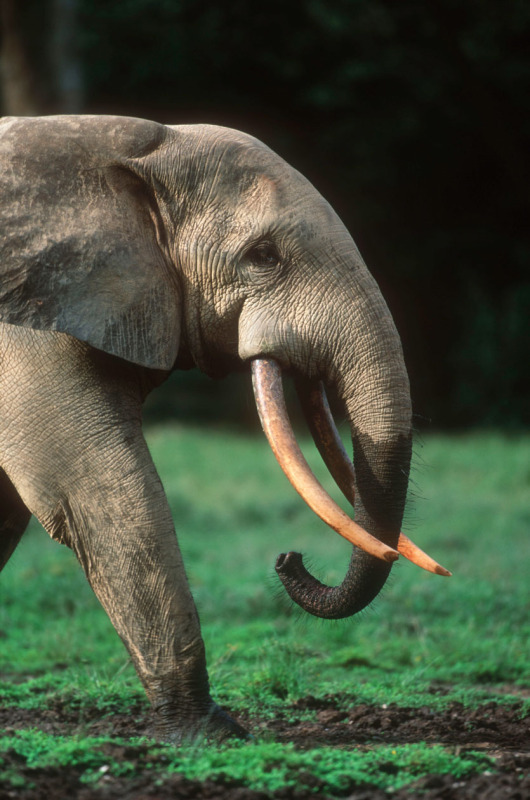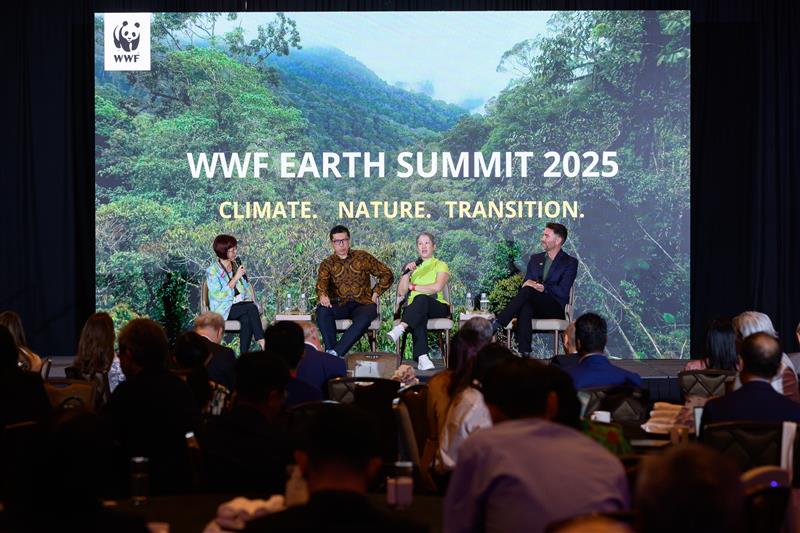An estimated 189 African forest elephants are now living in Côte d’Ivoire’s Taï National Park, according to the findings of a recent survey. The last reliable population estimate was conducted nearly 30 years ago and counted 800 elephants.
The current population level was determined by counting dung piles throughout the park. Taking into account the estimate’s margin of error, the actual number of elephants in the area could range from 54 to 324.
The results are consistent with estimates from ongoing bio-monitoring being conducted in the area by WWF and national park staff, which indicates a population of about 200 animals.
Forest elephants are an elusive sub-species of African elephant inhabiting the densely wooded rainforests of West and Central Africa. Their reclusive behavior precludes traditional counting methods such as visual identification.
“In addition to establishing the number of elephants, the survey also gives us insights into the animals’ distribution within the park,” says Mr. Lamine Sebogo, WWF African Elephant Programme Coordinator. “We found that the elephants are avoiding areas frequented by poaching gangs and are congregating near water sources.”
During the survey, researchers heard gunfire, discovered spent cartridges and snares, and encountered poachers’ camps in the park. Evidence of poaching activity was greatest in areas that are infrequently patrolled by park rangers.
The forest around a WWF-supported chimpanzee habituation program was found to be a “no-go” area for poachers, according to the report, likely due to the daily presence of conservation staff.
Taï National Park was declared a World Heritage Site in 1982 and is home to rare species including the endangered pigmy hippopotamus. The forest complex is the largest in the region, but is surrounded by cocoa, coffee and rubber plantations. Mineral extraction also occurs nearby.
Elephant populations in West Africa have declined throughout the 20th and 21st centuries as a result of ivory poaching, habitat loss, and human-wildlife conflict. The animals are now restricted to about 70 small, isolated fragments of their previous habitat.
“Taï is one of West Africa’s most important wildlife refuges,” Sebogo says. “To protect the elephants, chimpanzees and other species living there we must secure the park from poachers. To do this, increased funding and support from the international community is needed.”
The elephant population survey was conducted by CITES’ Monitoring the Illegal Killing of Elephants programme and WWF’s African Elephant Programme with cooperation from Côte d’Ivoire’s national park service.















